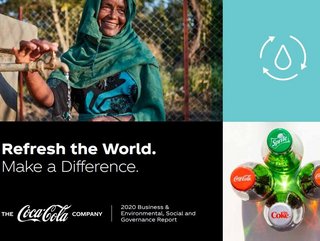Supply chain ESG due diligence tool signals way ahead

The move to make supply chains ESG compliant is becoming increasingly legislative and regulatory in nature, and this is placing ever-more pressure on businesses to identify, and remedy, transgressions.
Due diligence on human rights and forced labour in particular is now a issue of supreme importance, as ESG laws continue to be passed in countries across the developed world.
In the US alone, between 1 October 2019 and 30 September 2020, US Customs and Border Protection issued a record 13 Withhold Release Orders (WROs), detaining $55mn of goods. WROs prohibit imported goods that have involved the use of forced labour, including prison labour.
And on 23 February, the European Commission issued a landmark proposal for a Directive on Corporate Sustainability Due Diligence to tackle human rights and environmental impacts across global value chains.
Supply chain ESG due diligence vital
The Directive will impose a due diligence duty on large and SME EU companies in certain high-risk sectors - such as foods and fashion - to identify, prevent or remedy ESG infringements in their value chains.
And it is not just countries that are legislating on ESG - individual cities are also beginning to do so.
In January this year, the New York State Assembly unveiled the Fashion Sustainability and Social Accountability Act. If passed, this would make New York the first city to pass legislation to hold the biggest fashion brands to account for their role in climate change.
Backed by a powerful coalition of nonprofits, and the designer Stella McCartney, the law will apply to global apparel and footwear firms with more than $100 million in revenues who do business in New York, which is pretty much every large multinational fashion brand.
Specifically, it would require such companies to map a minimum of 50% of their supply chain, starting with the farms where raw materials originated, through to factories and also shipping.
With the legislative net growing ever tighter, businesses need help identifying, and addressing, ESG transgressions.
On that front, Diginex - which describes itself as a “disruptive impact technology company” - has launched diginexLUMEN, to help provide brands with transparency, trust and accountability across their global supply chains.
Coca Cola ESG software trial a success
The tool was built on lessons learned from a partnership with The Coca-Cola Company, which focused on responsible recruitment in Middle East countries.
It was then developed and scaled through financial and technical support provided by Coca-Cola and Reckitt, the British multinational consumer goods company.
The aim of the tool, says Diginex, is to “ensure all companies have access to affordable and scalable due diligence tools”.
Diginex CEO Mark Blick said: “diginexLUMEN can disrupt the once-a-year audit model and help businesses move towards a more continuous process of data collection and multi-stakeholder engagement in monitoring working conditions.
“The tool gives businesses unprecedented insight into their suppliers’ risk related to labour exploitation and forced labour by offering a robust governance and screening process, multilingual worker voice surveys, algorithm-based risk scoring and ESG reporting formats.
Granular ESG insight 'can improve lives'
“The granular insight it gives brands has the power to transform the lives of millions of people currently stripped of their employment rights and working in potentially harmful conditions.”
David Pettet, Global Human Rights & Sustainable Supply Chain Director, Reckitt, added that the company’s partnership with Diginex has “increased our understanding of recruitment practices within our supply chain”.
He added that the transparency it affords has allowed it to “take targeted action to promote ethical recruitment as we strive to create a fairer, more inclusive society”.
More solutions like diginexLUMEN will be needed if businesses are to avoid falling foul of the ever-more dangerous waters of ESG compliance.






